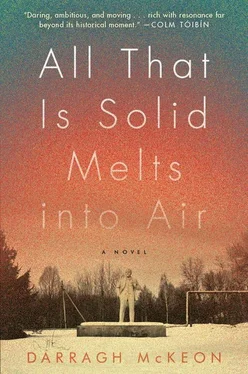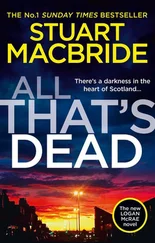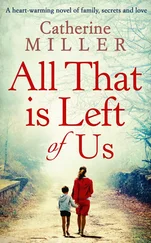A week later, he was there again, as she had hoped, modesty and confidence combined in his honest face, back for his second fitting. When the tailor left the room for more pins, Andrei stood there, wearing the frayed material, unable to move, a living dummy, and she approached and put her hand to his waist, folding the swatches for a better fit, and adjusted the angle of his lapels, her breath rippling over his chest as she did so, and he gathered her neck in his hand and they kissed briefly, in the moment. When he returned, the tailor tweaked and tucked the material while they stole glances at each other, the gorgeous pain of anticipation.
Later still, when the streetlights had come on and the tailor had walked away in his hat and coat and she had locked the door, she saw Andrei silhouetted in an alcove, and she unlocked the door again and his shoes clicked against the wet cobblestones and she let him into a darkened corner of the vestibule under the stairs. He bunched her hair in his right hand and placed his left flat and vertical on the downward valley of her smooth stomach, and they kissed a kiss that was a language unto itself, a kiss that was a separate country, until she pulled away from him and smoothed her hair behind her ear, and he saw her flat lobe with two elliptical holes and a small crescent-shaped scar just under it, the healed skin whiter than the rest of her. She, in turn, rotated his face into the light and traced a finger along his jawline. Not speaking, just watching, each of them observing the other.
On the stairs they were all decorum again, playfully affecting nonchalance, both understanding that once through the door there would be a torrent of hands and tongue and want, and she even made a little game with the keys, as though she couldn’t quite remember which was the right one, playing with him, drawing the tension out, until it seemed that Andrei was likely to put his shoulder to the door and pop it off its hinges, and then she did a double take with him. She looked at him casually and put the key in the slot, then paused and turned and looked into his eyes, serious as fire, then turned the key fully and pushed her way in, and his hair was on the cusp of her neckline, his hands on her upper arms, before they even managed to close the door.
She understood the word “belonging” then. Inside herself she was honed and made real and cast around his form, morphing into the same shape, and there was heat and lust and strands of thread in her hair, and a pincushion by her right ear and the dummy looming over them, sides filleted out, and she was there but not there, experiencing everything in the moment, consuming every detail of the experience but also outside herself, fragments of her past blurring through her mind, and he smiled reflectively in the middle of it, their thoughts linked, and they broke somehow into giddy trills of laughter, almost losing the moment and then serious again with a twist of his pelvis and a tightening of her mouth.
TANYA WOULD LIKE to explain some of this to the tired surgeon. She would like to talk about love once more, to share her experiences, but the wounds are still too raw.
She answers his question.
“I worked as a tailor’s assistant and he came in one day to get a suit adjusted.”
“And you moved soon after.”
“A while after. He was doing his military service. When it finished, then I became a farmer’s wife. A life, I’m surprised to admit, I loved. Feeding chickens. Milking cows. Who knew a city girl like me would adapt so well?”
Tanya rises quickly and takes their empty plates and places them in a plastic container. She’ll wash them later. When she returns Grigory offers her a glass and they drink and he waits for her to continue.
“Sometimes on TV they show things from the area. One night they showed people swimming in Pripyat River, people tanning themselves by the banks. The reactor in the background, smoke still coming from it. They get an old lady to milk a cow, she pours the milk into the bucket, and a man comes over with a military dosimeter and measures the radiation level, and it’s normal. Then they measure some fish on a plate. It’s normal. Everything is fine, says the commentator, life is going on as normal. In the shelter, after we were evacuated, some of the other women would get letters from their husbands at the plant. Same thing. Life is returning to normal. Everything normal.”
There is a box of matches on the next table. Grigory reaches over for it, takes one from the box, lights it, and watches it burn down to a stub in his fingers. He lights another. Then he speaks.
“I had a contact in Minsk. A surgeon also. In the earliest days I approached the hospital to tell them what was happening. There was a radioactive cloud hanging over the city. We were forbidden to speak officially of this. So, I spread the word any way I could, talked to people who were in contact with large groups.”
She sits back in her chair, folds her arms, listening intently.
“I talked to this surgeon and he was already aware of the situation. Nobody was coming in yet with radiation poisoning; that would happen in the following weeks. But there were plenty of people, many of them prominent Party members, who needed to get their stomachs pumped after overdosing on iodine tablets. So the medical staff naturally drew their own conclusions. But then he said something else. He said his friend was a librarian and that, the day after the explosion, four KGB guys came into the library and confiscated any relevant books they could find. Anything on nuclear war, radiography—even basic science primers, books to get kids excited about physics. They went to such lengths, of course people believe the propaganda.”
Tanya shakes her head.
“Did you meet any liquidators?”
He’s unsure if she wants an answer. He looks up to see how he should reply and she stares back calmly, waiting for a response.
“A lot of people volunteered. Thousands, not just locals like your husband. That first week they brought in busloads of factory workers, students. They were throwing people at the problem, offering them three, four times the average wage. Not everyone came for the money, though. Some were just put on a bus. They thought they were coming for just a weekend, a reward for their productivity. I saw people taking photographs of each other in front of the reactor, to prove they were there, as if it were a tourist stop.”
He runs a match through his fingers. He would like a cigarette.
“At first they treated it like a holiday camp. They worked of course, shovelled topsoil, dug drains, and in the evening they’d get smashed. There was plenty of vodka to go around. Although eventually that ran out and they started drinking anything they could get their hands on: cologne, nail polish remover, glass cleaner. By then they were drinking to blank out their days, to forget what they’d seen.”
“Why weren’t they replaced? Why were they made to stay for so long?”
“At first they were supposed to be there for two weeks. The initial guidelines made sense—I myself demanded many of them—but they quickly became compromised because of budgetary restrictions, or stubbornness from some senior official. Every man had a radiation meter around his neck. No one was supposed to be exposed to more than twenty-five micro-roentgen, the maximum dose the body can withstand. We gave each of them three sets of protective outfits. But my superior revoked his decision to supply washing machines; he wanted to save whatever clean water sources we had left. So the men had no way of washing their gear. After the third day, they were constantly wearing radioactive clothes. After those initial two weeks, they decided not to replace the liquidators, not to sacrifice others. In the morning planning meetings they would calculate how many lives they’d use up on a particular task. Two lives for this job, four for this. It was like a war cabinet, men playing God. Worst of all, it did no good. Those people were replaced anyway, they became too sick to work.”
Читать дальше












